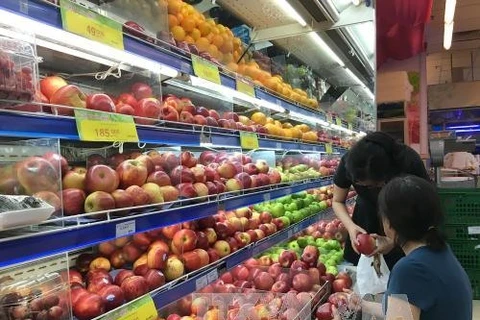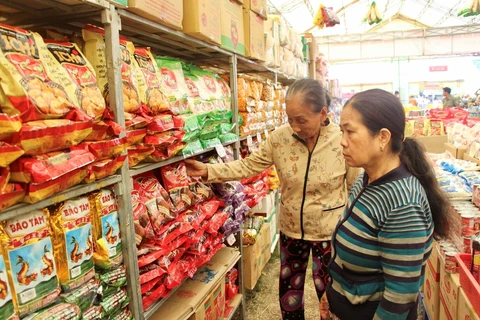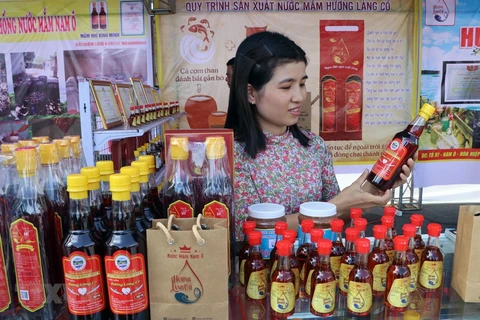HCM City (VNS/VNA) - Vietnam topped the world in terms of having the most avid savers with 72 percent, followed by Hong Kong (68 percent) and Singapore (65 percent), according to the Conference Board Global Consumer Confidence Survey released this week.
The survey done in collaboration with global measurement company Nielsen found Asia Pacific consumers leading the way globally in saving intentions.
In the second quarter Vietnamese said they spent less spare cash than in the previous quarter.
After savings, their spare money went towards buying new clothes (39 percent).
Despite a slight decrease from the previous quarter, Vietnam was second in terms of the proportion of people spending on medical insurance premiums (38 percent) behind only India (39 percent).
They also, unsurprisingly, indicated that they spent significantly less money on holidays (down 6 percent) and out-of-home entertainment (down 6 percent).
“Government lockdowns to contain the COVID-19 pandemic started a domino effect, with businesses, especially hotels, bars and restaurants closing down temporarily or permanently and consumer spending dropping due to fewer spending opportunities,” Louise Hawley, managing director of Nielsen Vietnam, said.
“The resulting job cuts and uncertainty increased anxiety about reduced incomes and stressed household finances.
“Even if we have seen a recovery, consumer demand is [still] on shaky ground, and the coming weeks are likely to see an impact with further reductions to spending. At the same time there remain reduced visits to stores, restaurants and other venues, as well as financial concerns and depressed discretionary spending on categories such as entertainment, new clothes and eating out.”
New technology products jumped into third place in spending (37 percent).
“Having more time at home -- and with technology playing a key role in everything from education, working and entertainment -- has created this demand for technology products,” Hawley added.
Vietnamese consumers continued to rank job security (45 percent) and health (44 percent) as their top two concerns.
Remarkably, there was a big jump in consumer concern about the economy, which, at 31 percent, was at the highest level since 2014.
In the second quarter Vietnam became the second most optimistic country globally with a Consumer Confidence Index of 117 points.
Despite a sharp decrease from 126 in the previous quarter, it went past the Philippines and Indonesia to rank second in the world behind India, whose score was 123.
The combination of deteriorating job prospects, rising anxieties about short-term personal finances and spending readiness drove the decline in Vietnam’s consumer confidence during the quarter.
All three drivers of consumer confidence, job prospects, personal finances and spending intentions, witnessed significant declines (down 5 percentage points, 4 percentage points and 7 percentage points).
The survey was done between May 7 and 25 by polling more than 33,000 consumers in 68 markets throughout the Asia-Pacific, Europe, Latin America, Africa and the Middle East, and North America./.
The survey done in collaboration with global measurement company Nielsen found Asia Pacific consumers leading the way globally in saving intentions.
In the second quarter Vietnamese said they spent less spare cash than in the previous quarter.
After savings, their spare money went towards buying new clothes (39 percent).
Despite a slight decrease from the previous quarter, Vietnam was second in terms of the proportion of people spending on medical insurance premiums (38 percent) behind only India (39 percent).
They also, unsurprisingly, indicated that they spent significantly less money on holidays (down 6 percent) and out-of-home entertainment (down 6 percent).
“Government lockdowns to contain the COVID-19 pandemic started a domino effect, with businesses, especially hotels, bars and restaurants closing down temporarily or permanently and consumer spending dropping due to fewer spending opportunities,” Louise Hawley, managing director of Nielsen Vietnam, said.
“The resulting job cuts and uncertainty increased anxiety about reduced incomes and stressed household finances.
“Even if we have seen a recovery, consumer demand is [still] on shaky ground, and the coming weeks are likely to see an impact with further reductions to spending. At the same time there remain reduced visits to stores, restaurants and other venues, as well as financial concerns and depressed discretionary spending on categories such as entertainment, new clothes and eating out.”
New technology products jumped into third place in spending (37 percent).
“Having more time at home -- and with technology playing a key role in everything from education, working and entertainment -- has created this demand for technology products,” Hawley added.
Vietnamese consumers continued to rank job security (45 percent) and health (44 percent) as their top two concerns.
Remarkably, there was a big jump in consumer concern about the economy, which, at 31 percent, was at the highest level since 2014.
In the second quarter Vietnam became the second most optimistic country globally with a Consumer Confidence Index of 117 points.
Despite a sharp decrease from 126 in the previous quarter, it went past the Philippines and Indonesia to rank second in the world behind India, whose score was 123.
The combination of deteriorating job prospects, rising anxieties about short-term personal finances and spending readiness drove the decline in Vietnam’s consumer confidence during the quarter.
All three drivers of consumer confidence, job prospects, personal finances and spending intentions, witnessed significant declines (down 5 percentage points, 4 percentage points and 7 percentage points).
The survey was done between May 7 and 25 by polling more than 33,000 consumers in 68 markets throughout the Asia-Pacific, Europe, Latin America, Africa and the Middle East, and North America./.
VNA























